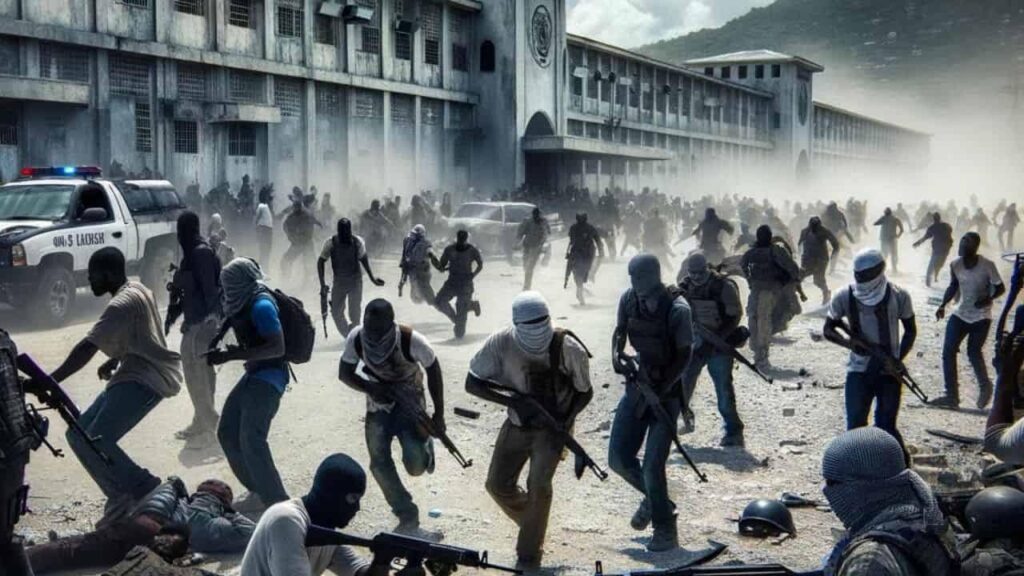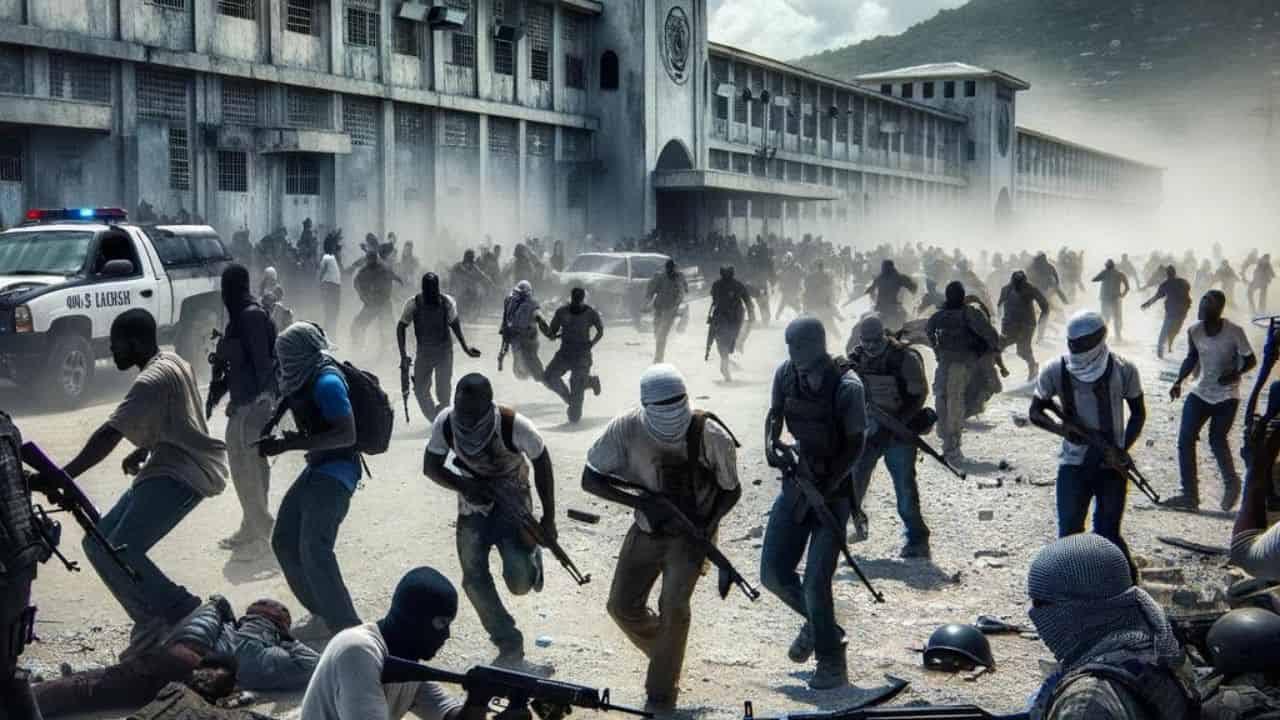Introduction to Haiti’s Prison Break Crisis
In a dramatic turn of events that has shocked the international community, Haiti finds itself grappling with a severe security crisis. The Caribbean nation declared a 72-hour state of emergency after a shocking incident where armed gangs launched coordinated attacks on two major prisons. This audacious move led to the escape of thousands of inmates, throwing the country into a state of heightened tension and uncertainty.

The Escalation: Gangs Overrun Major Prisons
Over a single weekend, the peace of Haiti was shattered as armed gang members targeted the National Penitentiary in Port-au-Prince and another key facility in Croix-des-Bouquets. Reports from various media outlets paint a grim picture of nearly 4,000 inmates, almost the entire population of the National Penitentiary, breaking free in what appears to be a meticulously planned operation. The scale and audacity of these breakouts have left the nation and its observers in disbelief.
Government’s Response to the Crisis
In the aftermath of these unprecedented jailbreaks, the Haitian government was quick to react, imposing a state of emergency and a nighttime curfew in an effort to regain control. Finance Minister Patrick Boisvert, temporarily leading the government, has called upon the police to use “all legal means” at their disposal to recapture the escapees and enforce law and order. This move underlines the severity of the situation and the government’s resolve to address it head-on.
The Call for International Support
Amidst this chaos, the absence of Prime Minister Ariel Henry, who is currently seeking international support in Kenya for a U.N.-backed security force, underscores the dire need for external assistance. Haiti, plagued by deadly gang violence for years, is at a critical juncture, and the current crisis only amplifies the urgency for a robust international intervention to stabilize the nation.
Legal and Human Rights Perspective
From a human rights standpoint, the situation is equally alarming. Arnel Remy, a prominent Haitian lawyer and head of a legal collective, has provided updates on the crisis, indicating that the number of escaped prisoners is staggering. The breakout not only poses a significant security threat but also raises serious concerns about the conditions within Haiti’s penal system and the broader implications for human rights in the country.
The U.N.’s Warning and the Path Forward
The United Nations has sounded the alarm on the continuing erosion of government authority in Haiti, with lawlessness and gang violence overshadowing daily life. The current prison break crisis is a stark reminder of the multifaceted challenges facing Haiti, including political turmoil, social unrest, economic instability, and the perennial threat of natural disasters.
Security Alert for U.S. Citizens
In a telling indication of the crisis’s severity, the U.S. Embassy in Haiti has issued a security alert, advising U.S. citizens to leave the country as soon as possible. This advisory, coupled with warnings of gunfire and disruptions near the Port-au-Prince airport, highlights the volatile situation on the ground and the potential risks to foreign nationals.
Conclusion: A Nation at a Crossroads
Haiti’s current crisis is a complex amalgamation of security, political, and humanitarian issues. The massive prison breaks have not only exposed the vulnerabilities of the country’s penal and security apparatus but also posed a significant challenge to the government’s efforts to maintain order and stability. As the international community watches closely, the path forward for Haiti remains fraught with uncertainty, underscoring the need for a coordinated and comprehensive approach to address the deep-rooted issues plaguing this Caribbean nation.
